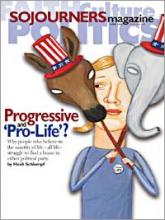Two distinct audiences will get much out of Lifting Up the Poor: religious activists who want to better understand the complex causes of poverty and communicate more effectively with policymakers about its elimination; and secular activists who want to learn about religious claims and convictions integral to an honest debate about poverty, policy choices and, more broadly, the public purposes of religion.
Policy wonks, religious or secular, will recognize the names of these two authorsboth live up to their reputations for rigorous policy analysis. Mary Jo Bane teaches at Harvards Kennedy School of Government and was co-chair of President Clintons Working Group on Welfare Reform and assistant secretary at the Department of Health and Human Services. Larry Mead teaches at New York University and was deputy director of research for the Republican National Committee and policy analyst at the U.S. Department of Health, Education, and Welfare.
In this slim book, Bane and Mead apply their faith and political expertise to issues of poverty. Although they agree more than they disagree, its instructive to focus on three areas of disagreement. First, they approach and interpret the Christian story differently. Bane, a Catholic, views the Bible as one source of social teaching along with tradition, reason, and experience. Scripture reading helps form the community into one that, at its best, is "joyful, hopeful, inclusive, and generous," Bane writes. Mead approaches the Christian story from a Calvinist perspective, which is characterized by discipline, responsibility, and skepticism about human nature and behavior.
Read the Full Article
